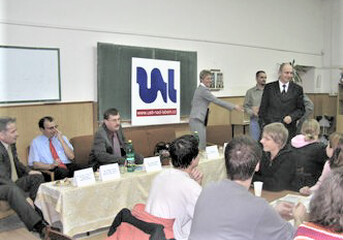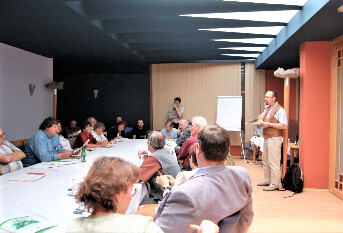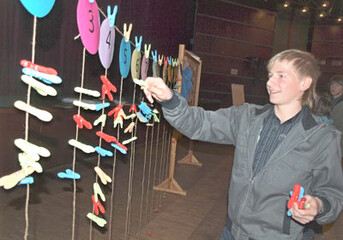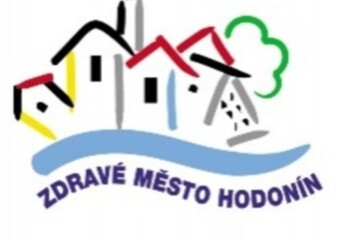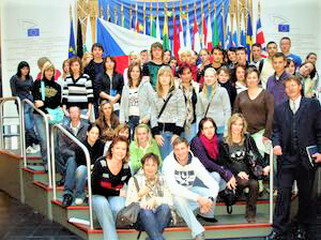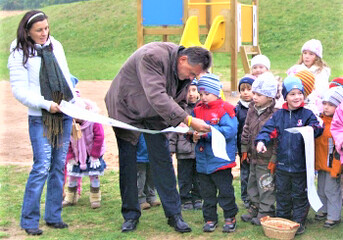My footprint in school - participatory budgeting for schools 
Participation teaches students decisiveness and responsibility for their surroundings, teaches public speaking and joint communication. It develops teamwork, creative thinking, enriches teaching and presents a democratic system in which pupils learn basic electoral principles.
Basic information
| Name of the city/town/region: | |
|---|---|
| Organization: | Strategic Development and Participation Unit - City District Prague 10 |
| E-mail: | |
| Subject: |
Komunikace mezi veřejnou správou, občany a dalšími subjekty, participace |
Description and outputs |
|
| Describe the main purpose / aim of your activity / project. What were its side effects or secondary results? | The main output of the project is primarily the implemented projects of the involved schools and the educational effect of the experience of participation on the form and operation of the school. However, there are other outputs that are no less important, such as the cooperation of the district with schools through coordinators (they are often active teachers who also lead many other projects). We are still in contact with these teachers, a joint meeting took place and others will follow. Last but not least, communication was established with the school parliaments, as they were responsible for the successful flow of information about the development of the project between management, teachers and pupils in most schools. This cooperation gave rise to the so-called School Forum (=youth council). The project was led by the department of strategic development and participation from the Mayor's Office, and a special web interface was created where individual coordinators logged in and went through the entire process step by step. |
|---|---|
| Were the implemented activities documented? | All outputs are published on a separate website https://veskole.mojestopa.cz/, but also on the city district's FB page Prague 10. At the same time, the presentation of the schools took place on their own websites and FB profiles. |
| Start of activity: | 01.04.2021 |
| End of activity: | 30.06.2022 |
| Attachment | ZŠ Jakutská – prezentace projektů JPG (3,06 MB) ZŠ Karla Čapka – vítězný projekt – řasokoule JPG (249 kB) ZŠ Solidarita – výstava projektů před hlasováním JPG (2,78 MB) ZŠ U Vršovického nádraží – školní workshop JPG (1,65 MB) |
Budget |
|
| What were the financial costs of carrying out the activity? | [tis. Kč] EUR 14.400 |
| How was the activity funded? | The participatory budget at schools was financed from the budget of the city district. |
| Detailed schedule: | 9 schools x 1.400 EUR for the implementation of projects |
Recommendations and inspiration |
|
| What recommendations / advice can be deduced from the implementation of your activities and provided to other municipalities with a similar intention? | When implementing a participatory project, we recommend allocating time to a worker who will be in charge of coordination and communication with schools. The possibility of getting closer to the functioning of schools of pedagogical collectives and school communities is clearly one of the important outputs, which can serve as a basis for further involvement of schools in the life of the community and vice versa. It is also necessary to monitor compliance with deadlines, coordinators are often busy with other projects. Furthermore, the municipality must clearly state whether investment and non-investment projects are supported within the project. Larger investment projects, which schools co-finance from their own resources, have a greater impact and the potential to change the functioning of the school's life, but they are more demanding for the municipality - more intensive communication and cooperation with several departments is required.</p> |
| Attachment: | Návrh metodiky Moje stopa ve škole 2022/2023 PDF (244 kB) |
Risk, obstacles and positive moments in the implementation process |
|
| During the implementation of the activities / project, did you encounter an event that fundamentally affected the implementation? | The coronavirus pandemic clearly had a negative impact on the implementation process, so school coordinators had to communicate with students both during face-to-face and distance learning. This affected, for example, the fluency in the collection of ballots from pupils and classes, as well as the distribution of voting codes. On the other hand, a pleasant surprise was a situation that was repeated in several schools - the management also approved for voting projects that had budgets many times higher than what was the contribution of the Municipal Council for implementation, with the justification that they have the funds for this or that project, but only thanks to this project they learned that the students wanted it. |
Monitoring and evaluation |
|
| Has the impact of the implemented activity / project been measured and evaluated in any way? | The evaluation of the project took place on several levels. Since this was a pilot project aimed at validating procedures, each of the planned steps in the schools had to be carefully observed and evaluated. This was achieved, the school coordinators actively communicated with the Municipal Council and continuously provided feedback. At the end of the school year, there was a written evaluation, but also an informal meeting with the coordinators, which took the form of a focus group. First of all, the result is 8 implemented school projects, i.e. all schools successfully went through the process of design - approval - voting - evaluation. Another monitored indicator was the number of proposed student projects at individual schools, respectively the number of projects approved by the management to proceed to the vote. Here the situation was different and the numbers ranged from 4 to 15 projects advancing to the vote. We also monitored the number of pupils involved. The average number of pupils involved in voting was 60% - however, the numbers were affected by the unpredictability of the situation with quarantines/isolations of pupils and entire classes due to the coronavirus. |
| Attachment: | Zpráva - přehled projektů PDF (55 kB) |
| Do you plan to further develop/maintain the activity/project? | 11 schools are registered for the second round of the project, which will start in the fall of 2022 – good practice has therefore spread among the schools, and the principals are interested in the project. The development of the activity takes place on the basis of the feedback collected from the first year. |
Media, promotion |
|
| How was the communication with the media and what were the media outcomes? | The activity was presented in an article in the monthly magazine of the municipal district, on special websites www.veskole.mojestopa.cz, on social networks of the municipality , schools on their communication channels, at the same time several official press releases were issued. Individual schools presented the project through their school magazines, school exhibitions and promotional videos. |
| Attachment: | Články v novinách MČ Praha 10 a tiskové zprávy ZIP (1,12 MB) |
Additional notes |
|
| Additional notes | Participatory budgeting for schools is a great opportunity to deepen cooperation between the school and the municipality. Not only does it support communication at the level of municipality - school principal, but it can open new doors to other levels, such as municipality - teachers, but also municipality - pupils. It can start other forms of cooperation and projects that will support the pupils' sense of belonging to the place where they live. |
Partakers |
|
| Name: | MČ Praha 10 |
| Company number or other registration data: | IČ: 00063941 |
| Address: | Vršovická 58 Praha 10 |
| Web: | https://praha10.cz/ |


